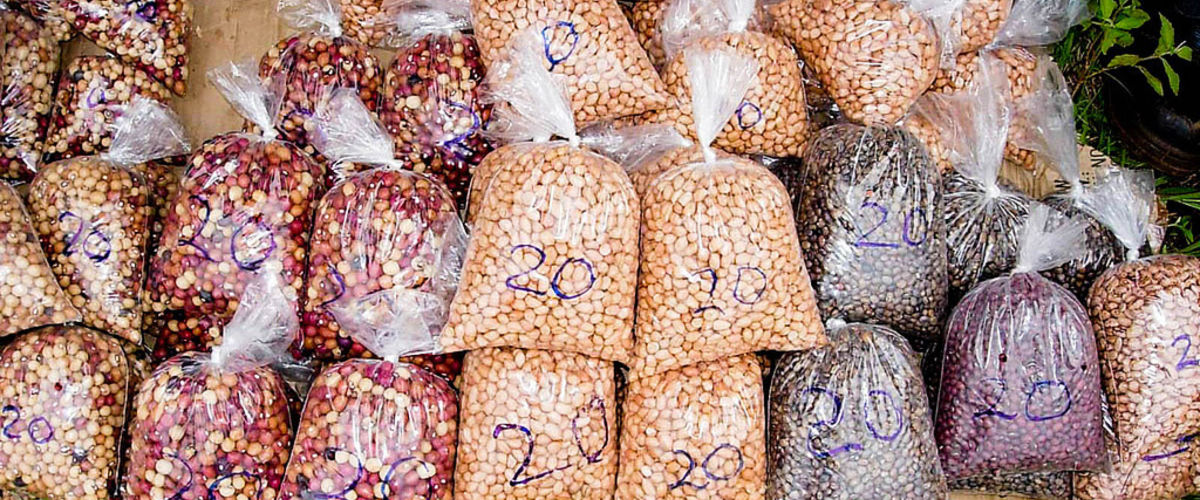
CORAF 28 October 2016 /
USAID, West Africa Mission on behalf of the Technical and Financial Partner Group of the ECOWAS Department of Agriculture and Water Resources, convened key regional partners and stakeholders for a focused technical round-table discussion on next generation and priorities of the region for inputs, fertilizer, agricultural technology and seed programs in the light of the new ECOWAS Regional Agriculture Investment Plan that is being finalized. CORAF/WECARD hosted this meeting at Dakar on October 19th, 2016. The meeting was facilitated by Mrs. Shirley Erves of the USAID-West Africa Mission.
Themed: “Improving Farmer Access to improved seeds and fertilizer: Next Steps for Regional Programming”, the round table provided a platform for strategic partners such as ECOWAS, UEMOA (represented by ECOWAS) CILSS, Hub Rural, IFDC, AFSTA-West Africa, Seed Enterprises Association of Nigeria (SEEDAN), West Africa Fertilizer Association (WAFA), CORAF/WECARD and USAID, to map the regional understanding of the constraints and opportunities to increasing the availability and affordability of quality and appropriate fertilizers and seeds.
With the ambition to take the leadership role in all seed related issues in the sub region, Dr Abdou TENKOUANO, the Executive Director of CORAF/WECARD presented the new re-orientation of the institution to respond to the new visions of regional agricultural policies; this is to fuel a modernized and sustainable agriculture, based on the effectiveness and efficiency of small holder farmers and the promotion of agricultural enterprises through the active involvement of the private sector.
Therefore, the forum leveraged the CORAF/WECARD-led West Africa Seed Program and the IFDC-led West Africa Fertilizer Program to convey key stakeholders to take stock on constraints for redress and opportunities to be capitalized on, to propel the growth of the agri-input industry. As major constraints, the African Seed Trade Association (AFSTA) pointed out access to loans and equipment to expand private business and farmers access to inputs are a major hindrance to the growth of the agri-input industry, particularly seeds. Participants also mentioned cross-border restrictions to movements of fertilizer and seeds as a major bottleneck.
To overcome these challenges, CORAF/WECARD believes that science, technology, innovations and appropriate policies need to be applied to the agri-inputs sector. Therefore, Dr Abdou TENKOUANO, stressed CORAF/WECARD’s contribution in the Science for Agriculture Consortium (S4AC), a recently established coordinating platform for collective actions by supra-national agriculture research and development organizations in Africa to advance the implementation of the Science Agenda for Agriculture in Africa (S3A). The ambition is to “Facilitate access to inputs of good quality in volumes that fulfill the needs and means of smallholder farmers” said Dr Abdou TENKOUANO.
As a take-away message, participants agreed to a holistic approach to inputs (seed, fertilizer and pesticide) delivery and hence the need to have a mega program on agri-input in place of individual agri-input programs. They recommended a Mega Agri-Input Program which will be developed by ECOWAS, UEMOA, CILSS, CORAF/WECARD and partners, including USAID, the World Bank, African Development Bank addressing the concerns of both the private sector and farmers. Such a program should have the Private Sector and the Farmer Organizations at the forefront to effectively improve the supply and use of agri-inputs to achieve the objectives of the Regional Agricultural Investment Plan/National Agricultural Investment Plans.







